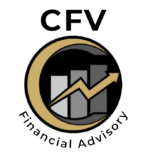Cash flow truly is the undercurrent that carries our personal finances, lifestyle or business forward. As we find ourselves in a high inflation environment while still caught in the wake of the COVID-19 pandemic, cash flow remains pivotal to our ability to endure, move forward and enjoy both personal and professional success.
Cash flow overview
Being such a prominently discussed topic in business and finance can lead some people to overcomplicate their understanding of cash flow. While the factors impacting cash flow can be complex, cash flow (put simply) is the money that you have coming in from revenue, and your outgoings.
Cash flow challenges in business
1. Expenses that get out of hand
It can be easy to focus all of your time and attention on your customers, staff and business growth, while your expenses quietly creep up a level that’s unsustainable. However, unexpected expenses also have a lot to answer for when it comes to causing a cash flow crunch in businesses and personal finance, alike.
2. Slow paying customers
Do you experience a delay in your receivables? Often, slow-paying customers can cause cash flow hiccups that flow on into other areas of the business. Consistency around your policies and procedures, as well as being transparent with your customer base on when payment is expected can help combat the cash flow interruptions and save you wasted time on chasing up unpaid invoices.
3. No accounts receivable collection plan for non-payment
Speaking of unpaid invoices, the cost and time spent recovering unpaid invoices from a delinquent customer can escalate rapidly. Having a standard process is the best way to ensure that unpaid invoices don’t slip through the cracks. Automated reminders and a set time period where it’s handed over the collections agencies can take the onus off you, and ensure that your invoice is recovered.
4. Uncertainty over future cash flow
Overcoming cash flow concerns with CFV Services
No matter if you’re a business, professional or family, CFV Services can help analyse your cash flow and provide long term strategies to unlock your financial potential — now and into the future.

